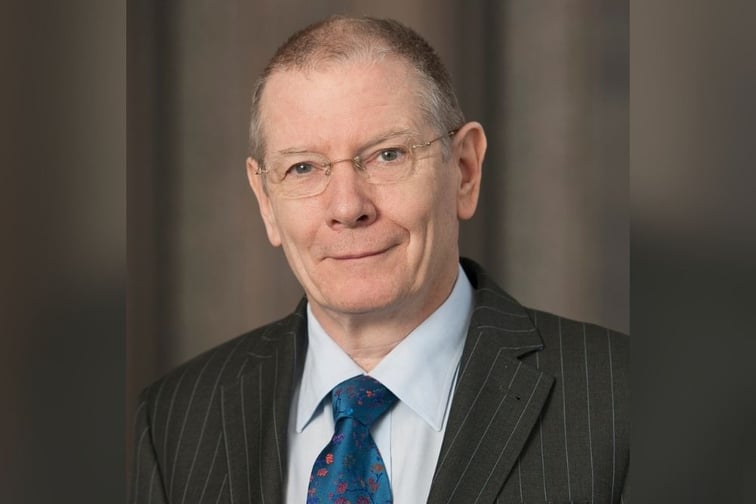

Industry veteran Fred Hawke, a consultant for law firm Clayton Utz and faculty member of the Australian College of Insurance Studies (ACIS), says a fascination with risk has always driven his interest in the insurance industry.
“I’m nobody’s mathematician, and I’m basically incompetent in statistics and probability,” Hawke says. “But I’ve always been intrigued by how integrated risks are and how things fit together, and insurance, pre-eminently, is about the definition and analysis of the quantification of risk. That’s what got me interested.”
Hawke was born in Lithgow and grew up in Adelaide, where he completed a law degree before moving to Melbourne in his late 20s. His first industry job was as a motor claims officer at AGC Insurances, owned by Westpac. At that time, Hawke says, insurance professionals often had an inferiority complex because of their lack of educational credentials compared to lawyers, accountants and engineers. He remembers industry functions as a chance for colleagues to overcompensate.
“Every second person – and they were usually men over the age of 60 – would have some piece of ironmongery, a medallion of some sort on a silver ribbon, hanging around his neck, which signified that he was the immediate past president of some such organization of loss adjusters or something,” he recalls. “They were forever obsessing about their regalia.”
Around that time, Hawke stumbled on a case of fraud when he inadvertently assessed the same vehicle twice. He noticed there was a nearly $2,000 difference between the two assessors’ reports.
“We found that that particular external assessor was consistently making the repair costs higher and always with the same smash repairers,” he says. “We got the manager of the business in, and he never admitted they were colluding with the smash repairers, but it was pretty obvious what was going on.”
While there wasn’t enough information to send a brief to the police, that particular firm didn’t get much more work from AGC. Hawke acknowledges that low-level fraud has always been endemic to the insurance industry, both by policyholders and, in some cases, employees.
“You’re talking about a vast subject,” he says. “It’s like asking me to explain the history of the Eastern Roman Empire in a few Power Point slides.”
In 1981, Hawke joined American International Underwriters, which eventually became AIG, as workers’ compensation claims superintendent for South Australia.
“The branch manager took me out to lunch and said, ‘In our company, Fred, you’ll learn two things. If you do your job effectively, get the results that are expected of you and deliver the goods, we don’t care how hard you work. We don’t care if you’ve got your work done by 1:00, [and you] go to lunch and spend the afternoon in the pub or on the golf course. Conversely, if you don’t deliver the goods and don’t get the job done, we don’t care how hard you work.’”
By the end of the 1990s, Hawke was still with AIG but had moved into a legal role as Australasian general counsel. In 1999, he joined Clayton Utz, working out of the firm’s Melbourne office.
Hawke says he had “two enormous advantages” over young lawyers coming straight into the fi rm from a law degree. In addition to the academic reputation he had built as an insurance lawyer through conference presentations and as editor of the Insurance Law Journal, “I had a deep internal knowledge from personal experience through the practical workings of insurance and insurance policies, both in terms of the way the contracts worked and the way the industry worked, from having done it myself for a long time,” he says.
After four years, Hawke became a partner at the firm. In 2019, he retired and now serves as an insurance law consultant for Clayton Utz.
“So I’ve practised law for the last 22 years,” he says, “but the law I practise is insurance law, informed by my knowledge and experience as an insurance claims officer, supervisor, superintendent, manager and general counsel.”
 The rise of professionalism
The rise of professionalismDuring his time in insurance, Hawke picked up an interest in the history of mathematics and other subjects, all of which are astutely employed in support of his views on the industry. While insiders might regard cyber threats, technology and the internet as the most significant changes to insurance in recent decades, he has a different perspective.
“The internet is just a medium; computers are just tools,” Hawke says. “The human mind hasn’t changed the way it works, and human motivations haven’t changed, and the mathematical principles on which insurance operates haven’t changed.”
He points out that the law of large numbers discovered by Jakob Bernoulli in the late 17th century and Abraham de Moivre’s central limit theory are still valid. “[De Moivre] probably worked that out on the back of napkins in Lloyd’s coffee shop – again, back in the 17th century.”
Rather, Hawke says the biggest change in the insurance industry during his career has been the emphasis on professionalism.
“What’s fundamentally shifted is that there is an expectation that insurance is a profession, not just a job, and that tertiary qualifi cations are required, of the same sort that other professions expect and take for granted,” he says.
Today, many young people starting in insurance come from university, not straight from school or an apprenticeship, and Hawke is glad for the change.
“There’s certainly no substitute for experience,” he says, “but experience is far more effective if it’s informed by a principled understanding of how the business works.”
